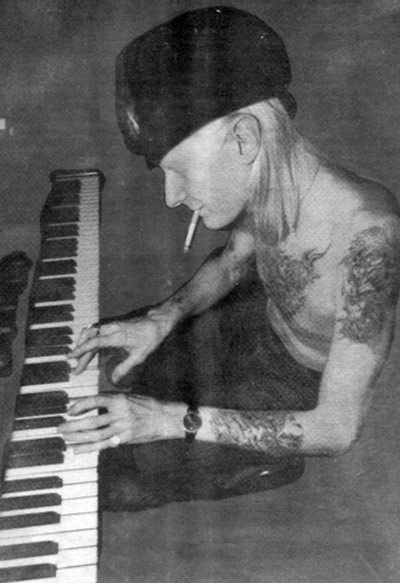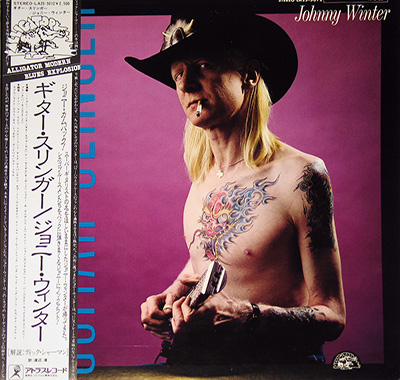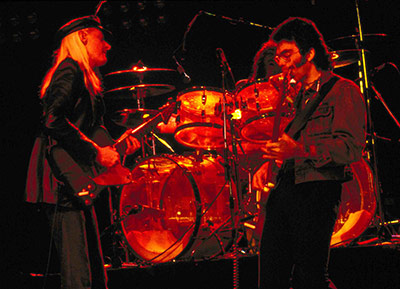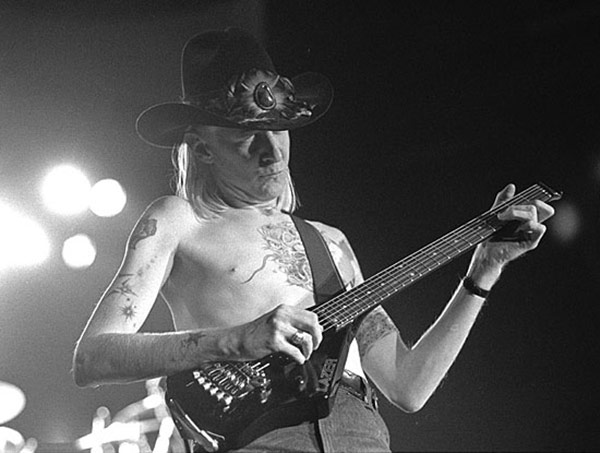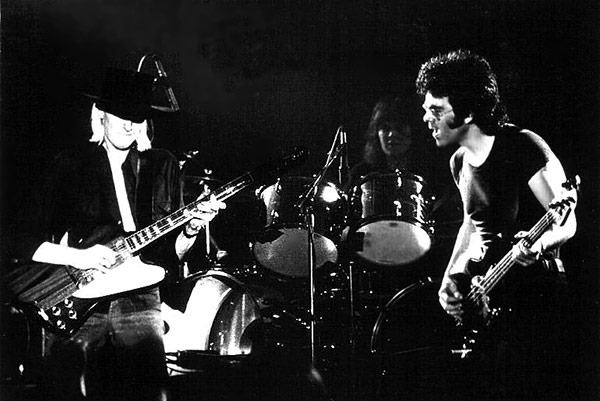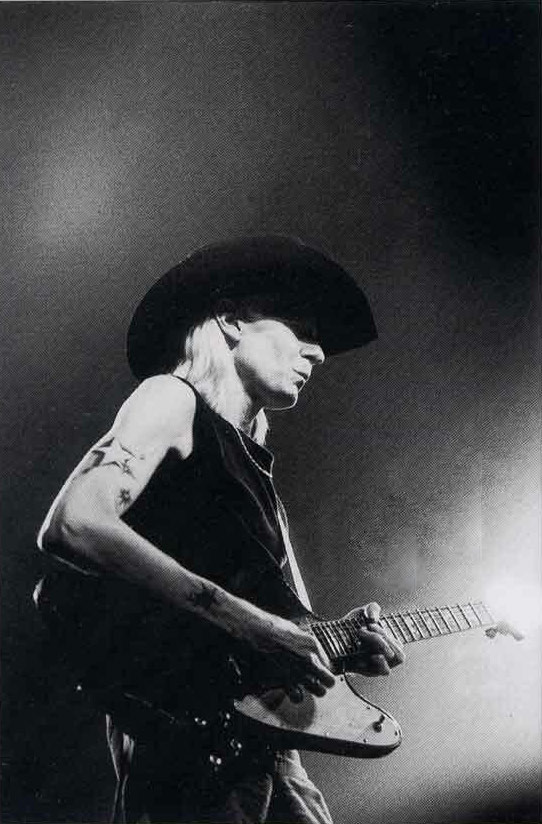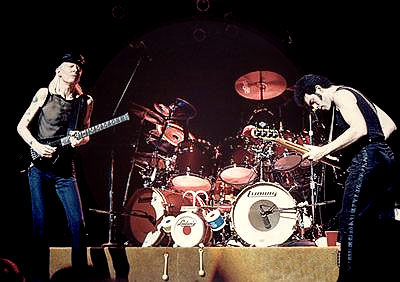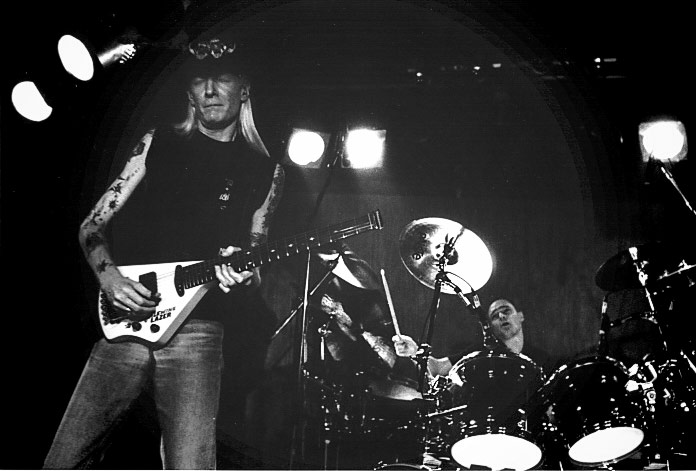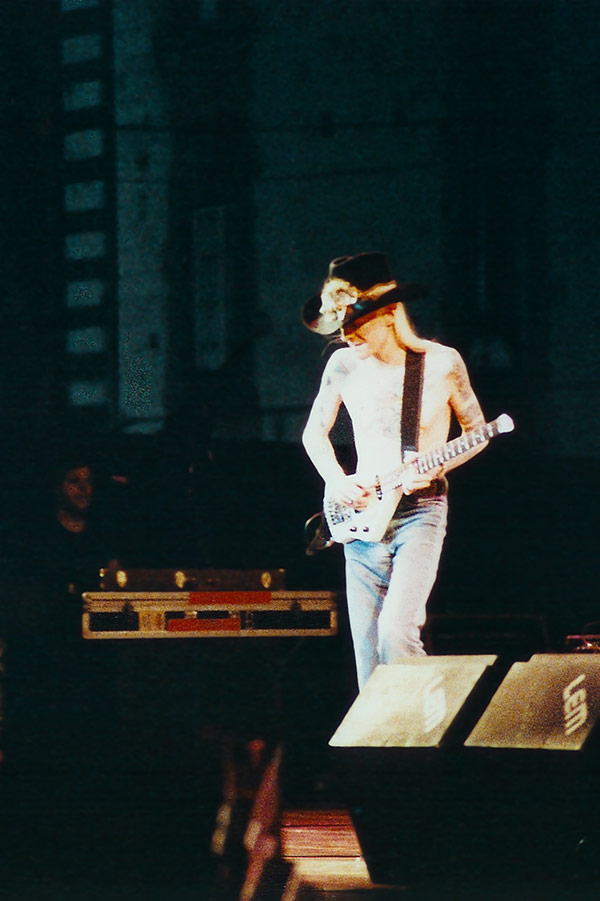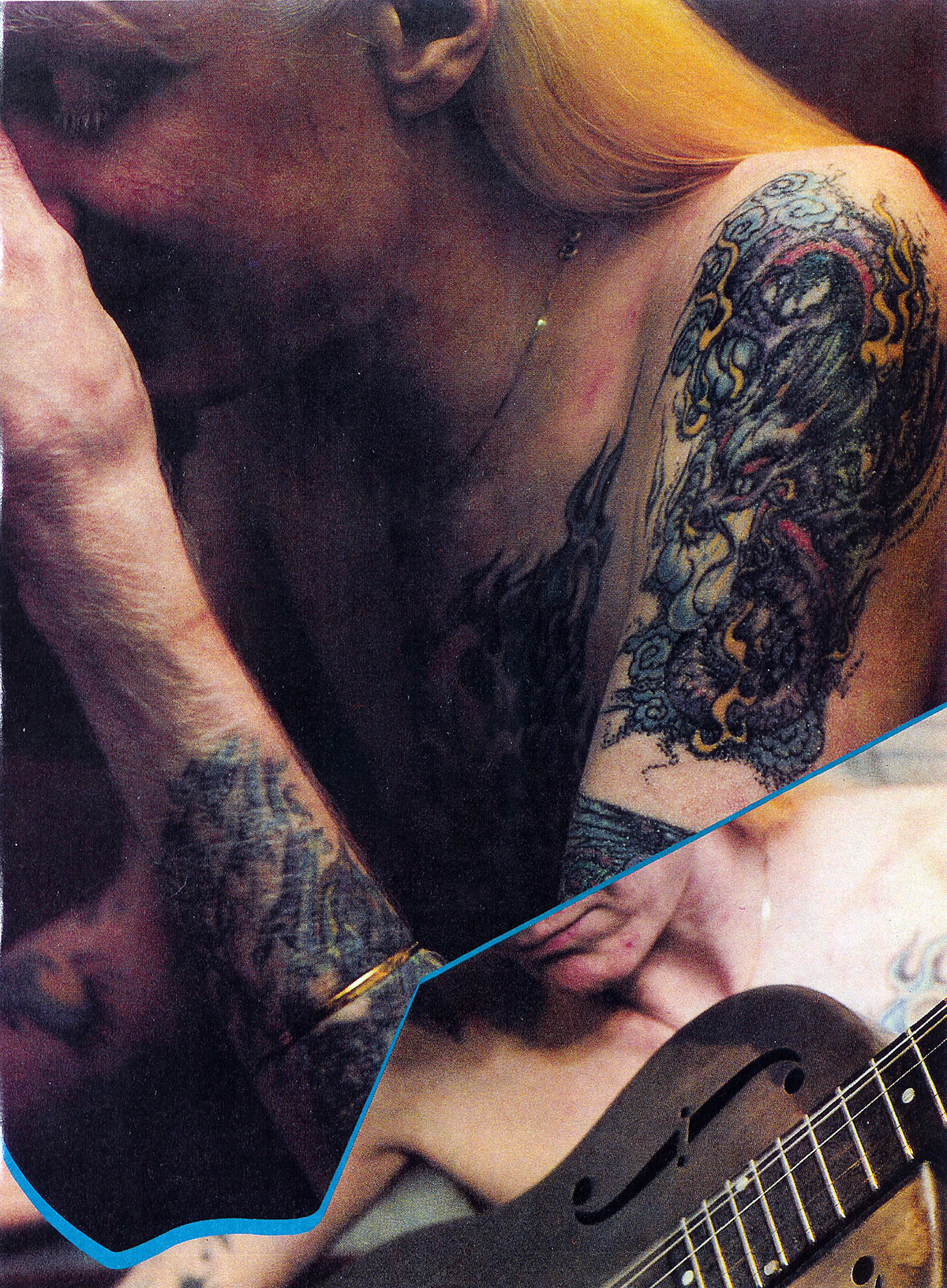Johnny Winter as the headliner, with the Dave Kelly Band as the opening act—this was how it was announced, and the expectations of the visitors who gathered around the open-air stage in Hamburg's Stadtpark, despite the mediocre weather, were accordingly high.
It was well known, even by the lady from the concert agency Karsten Jahnke, that Johnny Winter isn't the easiest person. No interviews were granted, which was particularly unfortunate as there were many unresolved questions regarding Winter's future. So, patience was required. Those who expected and hoped that the man with the snow-white hair would be supported by a black combo on his tour, or even by the musicians who so brilliantly accompanied him on Guitar Slinger, would have been disappointed. The bass was, as in previous years, played by Jon Paris, who also contributed some harmonica and had the urge to put himself in the spotlight. On drums was Tom Campton, who had been Alvin Lee's drummer for years and was recently seen with him in local venues. This continued the tradition of hard-hitting but always varied drummers in Winter's bands, from Johnny Turner to Randy Zehringer, Richard Hughes, Bobby Torello, and, in a way, Willie Smith and, most recently, Casey Jones.
There isn't much to say about the concert. Visually, with his guitar, hat, and tattoos covering his chest and arms, Johnny Winter appeared exactly as he does on the cover of Guitar Slinger. The opening number was, as usual, "Hideaway." This was followed by five tracks from the mentioned album, the classics "Johnny B. Goode" and "Jumpin' Jack Flash," and that was it! Powerful, even more energetic than on the record, with a steady, strong beat, a full bass, and the grand, dissolute marathon pieces that spanned several choruses, in which he made it clear, without room for contradiction, that no other blues guitarist could outplay him on stage. The optical interest came not from big show effects or lighting tricks but from his sheer presence. The 40-year-old Texan offered more charisma and personality than most of his musical peers.
Still, many of the (sober) attendees likely left with a bitter aftertaste. After just one hour of playing, the master bid farewell to the roaring crowd. Some "fans" forced their way onto the stage, others were violently prevented from doing so, cans were thrown toward the musicians, Johnny Winter cut short his encore and disappeared! Minor scuffles broke out between security forces and the audience, with the police called in to bring a dramatic end to the evening.
Who should be held responsible for these events? The organizer, who naively allowed beer in cans to be sold? The already partially drunk spectators, who saw no issue in turning their drink containers into projectiles? The stage security, who reacted violently rather than with finesse? Or Johnny Winter, who should have offered more than an embarrassingly short hour of music for 20 Marks—less than his opening act? Surely, everyone shares some blame.
A first step in the right direction would be to serve drinks in plastic cups, which would have better complied with Hamburg's ban on bringing cans onto the premises. It might also be worth considering a general alcohol ban because, frankly, we can probably do without those who would be deterred by such a rule.
Timo Hoyer
